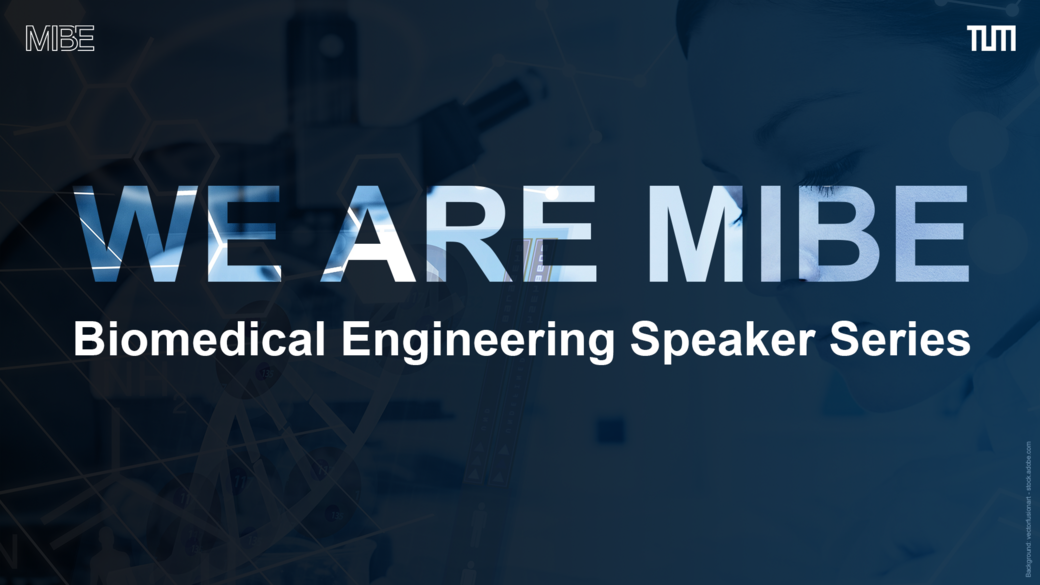In dieser Vortragsreihe geben pro Termin zwei Principal Investigators (PIs) des MIBE spannende Einblicke in ihre Forschung. Im Anschluss an die etwa 25-minütigen Vorträge gibt es Gelegenheit zum Austausch und Netzwerken vor Ort.
Prof. Dr. Marcello Ienca: Navigating the Ethical Frontier of Neurotechnology: From Neuroethics to Neurorights
Prof. Dr. Ruth Müller: Life Sciences, Biotechnology and Society: Insights from Science & Technology Studies
Update: Der Vortrag von Ruth Müller verschiebt sich auf das Sommersemester 2024.
Datum und Uhrzeit: Mittwoch, 07.02.2024, 16:15 – ca. 17:15 Uhr, anschließendes Networking
Ort: MIBE Hörsaal (Raum E.126), Boltzmannstraße 11, 85748 Garching und Zoom
Über die Vortragenden
Prof. Ruth Müller

Prof. Müllers Forschungsschwerpunkt ist im Feld der Interdisziplinären Wissenschafts- und Technologieforschung angesiedelt. Sie beschäftigt sich im Spezifischen mit den Interaktionen von Forschungspolitik, institutionellen Werten und akademischen Wissenskulturen; den Normen und Praxen akademischer Karriereentwicklung; der Soziologie und Epistemologie der Lebenswissenschaften; sowie Fragen von Gender und Diversity in natur- und technikwissenschaftlichen Wissens- und Arbeitsfeldern.
Bioengineering Day 2023: KI in der Medizin - Pressemitteilung (2023)
"Interdisziplinäre Forschung braucht Zeit" - Pressemitteilung (2019)
Bild: Uli Benz / TUM
Prof. Marcello Ienca

Professor Ienca forscht über die ethisch nachhaltige Entwicklung von KI-Systemen und Neurotechnologien. Er verwendet theoretische und empirische Methoden, um die ethischen, sozialen und politischen Auswirkungen dieser Technologien zu untersuchen. Dabei konzentriert er sich insbesondere auf Themen wie die Gehirn-Maschine Schnittstelle, die Beziehung zwischen KI und menschlicher Kognition, und die ethische Verarbeitung von Big Data. Er ist bekannt für seine Pionierarbeit bei der Erforschung von Neuro-Rechten.
Bild: Andreas Heddergott / TUM
Zu den Vortragsthemen
Life Sciences, Biotechnology and Society: Insights from Science & Technology Studies
New knowledge from the life sciences and the new biotechnological possibilities it creates for fields such as medicine, agriculture or energy production are significantly changing contemporary societies. Life science knowledge gives rise to new scientific, social and economic opportunities, but also create societal controversies and political challenges, as has become visible in the heated discussions about genetically modified organisms (GMOs) in agriculture, stem cell research, biofuels from food crops or most recently, the medical and agricultural use of gene editing technologies. In this lecture, Ruth Müller offers insights from the field of Science & Technology Studies (STS), a social science research field that investigates the complex relationships between science, technology & society, that allow us to think critically and constructively about role of the life sciences and biotechnology in society. Drawing on examples from the research at the chair of Science & Technology Policy, we will think through specific cases to better understand the social, ethical and political opportunities and challenges that characterize science-technology-society relations today.
Navigating the Ethical Frontier of Neurotechnology: From Neuroethics to Neurorights
Brain-computer interfaces (BCIs) and neurostimulation techniques hold transformative potential for individuals with neurological and psychiatric disorders, the ethical and societal implications cannot be ignored. This talk delves into the ethical tightrope of accessing and altering brain activity, addressing the balance between technological innovation and human welfare. The talk will outline the emergence of "neurorights," a novel framework that encompasses fundamental human rights, including cognitive liberty, mental privacy, mental integrity, and psychological continuity, designed to protect individuals in an age of advancing neurotechnologies. Drawing on real-world policy examples, Marcello Ienca highlights the practical application of neurorights and underscore the importance of responsible governance to ensure that neurotechnologies are harnessed for the benefit of all, while safeguarding personal identity and well-being.
Weitere Informationen
Livestream
Die Veranstaltung wird über Zoom gestreamt: https://tum-conf.zoom.us/j/612 2888 8412 Passcode: waMIBE
Anerkennung Qualifizierungsprogramm Promovierende
Bei fachlicher Eignung kann die regelmäßige Teilnahme an den Vorträgen als Fachspezifische Qualifizierung angerechnet werden.
Registrierungsformular für Promovierende
Weitere Termine dieser Reihe im WiSe 2023/24
Der nächste We are MIBE Vortrag mit Prof. Vasilis Ntziachristos & Prof. Franz Pfeiffer findet am Mittwoch, den 28. Februar 2024 um 16:15 Uhr statt.
